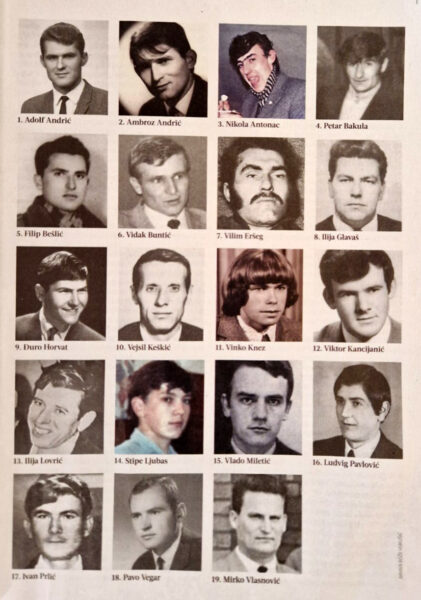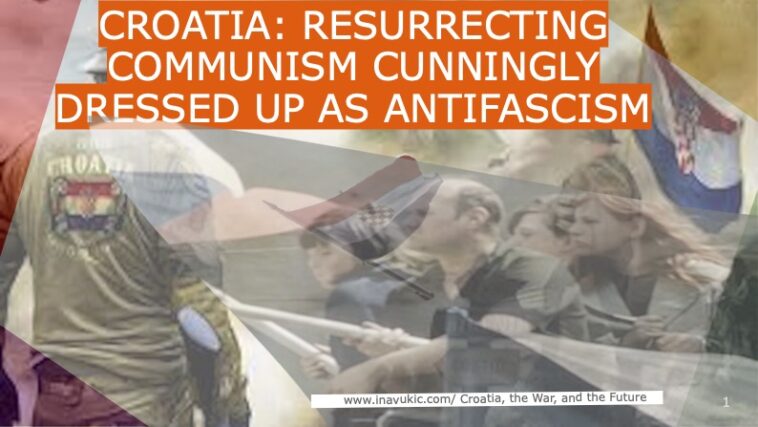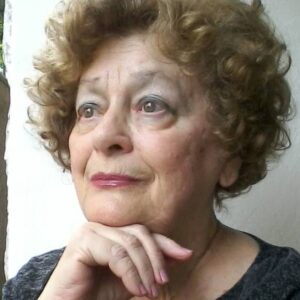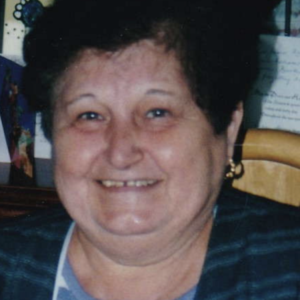For three months now I have been in Croatia, after a three-year pause due to pandemic circumstances that prevented travel out of Australia for the most part out of that period. These three years have culminated in a reality where, in Croatia, one cannot but notice the alarming atmosphere, both cultural and political, where it’s impossible not to feel that the governing and other powers, which are of communist breed, are trying to erase the 1990’s Homeland War as the foundation of today’s independent Croatia. State funded cultural events and political ones most often try and resurrect as freedom-bearers World War Two communist partisans (who murdered and massacred hundreds of thousands of Croatian freedom-fighters and Croat civilians who rejected communism and Yugoslavia) while totally in that process ignoring the fact that the 1990’s War of defence against the Yugoslav Army and Serb aggression was gloriously victorious. These communists of Yugoslavia have “christened” themselves, undeservedly, as antifascists. The latter undoubtedly so to avoid prosecution for communist crimes and genocide (during and post WWII) against the Croatian people predominately based on political beliefs. Croatian Homeland War was victorious and sealed Croatia’s independence and secession from communist Yugoslavia and yet, compared to cultural events such as publications funded by the state such as art exhibitions, motion pictures or movies, daily or weekly press, television, etc. that promote the communist era disturbingly outnumber those that promote the Homeland War! Funding for those that promote the Homeland War and Croatian truth are mainly and overwhelmingly left to the generosity of private charitable donors and to personal sacrifices of those who stand behind such efforts as are portraying the Homeland War as the true and only fighting determinant of today’s independent Croatia. It is a fact that former communists of Yugoslavia on the main did not want this independent Croatia and did not fight for it but rather deserted the cruel and bloody 1990’s battlefields and, hence, in there may lie the motive to accentuate the World War Two battlefield and undermine the 1990’s Homeland War one?
The former communists of Yugoslavia have perfected their abominable political trade in Croatia, giving life to something that never was: Croatian WWII independence fighters labelled as fascists and Nazis! And the Croatian tax-payer money unwittingly, without having any control over it, pays for this! The European Union and its Commission, who have long ago condemned all totalitarian regimes, including the communist one, tolerate this and permit symbols and values of communism, dressed up as some antifascism, to tear the Croatian nation apart!
All in all, this is a terrible state for a country forged in the bloody war to be in. It is a boiling breeding ground of restless discontent and a ground from which sprout urges to justify in one way or another that the defence from the brutal communist rulers and Serbs was just and chosen by 94% of voters in April/May 1991! It is undoubtedly the result of the past twenty-three-year campaign to equate the victim and the aggressor from the Homeland War and the Serb lobby being well-oiled by Croatian tax-payer funds!
It is yet to be seen whether Croatia and its political landscape is creating the nation-wide dissent that occurred among freedom-loving Croatian people during communist Yugoslavia totalitarian regime.
We are in the month of June, and it is apt here, in line with dissent from and against communist oppression and political engineering and what it can generate among freedom-loving people to remember June 1972. On 20.06.1972 the Croatian patriotic paramilitary group called “Mountain fox” (Ambroz Andric, Adolf Andric, Pavao Vegar, Ilija Glavas, Djuro Horvat, Vejsil Keskic, Viktor Kancijanic [Kocijancic], Petar Bakula, Ludvig Pavlovic, Mirko Vlasnovic, Ilija Lovric, Filip Beslic, Stipe Ljubas, Vlado Miletic. Vinko Knez, Ivan Prlic, Nikola Antunac, Vilim Ersek, Vidak Buntic) entered the territory of communist Yugoslavia with the aim of raising a rebellion and overthrowing the constitutional and legal order of that time. The group is known as the Bugojno Group or the Phoenix Group and was organised by the Croatian Revolutionary Brotherhood (HRB), a secret organisation, which was founded in 1961 in Australia, and which operated in Europe and the USA. The main goal of the HRB was the liberation of Croatia from Yugoslavia, and the idea arose after the brutal suppression of the Croatian Spring in 1971 within Yugoslavia by which political activities sought to achieve greater autonomy for Croatia within the oppressive communist Yugoslav regime, when the HRB concluded that a favourable climate had been created in Croatia for the initiation of an armed uprising. After a short preparation, HRB organised manpower, weapons, and financial support to send the initial group, which had the task of starting an uprising in the areas of southern Croatia, Lika and Herzegovina. Most of the fighters and money came from Australia, while the military equipment was procured in Germany. Short final preparations were made in the camp at Garanas in Austria, along the Austrian-Yugoslav border, and Yugoslavia was entered in the area of Dravograd in Slovenia. However, after only five days, the group clashed with the Yugoslav militia, and then with the Yugoslav People’s Army and the Territorial Defence. Against the Group of 19 men were more than 30,000 members of these Yugoslav police and military formations who set out destroying the Group, to finally succeed in this on July 24, with the help of informers and the UDBA/Yugoslav Secret Services. Ten members of the group lost their lives during the conflict in different places in Bosnia and Herzegovina, and eight were captured and executed without trial by shooting near Sarajevo. The only survivor was the youngest member of the group, Ludvig Pavlovic, who was sentenced to 20 years in prison, and later died (killed) as a Croatian defender in the 1990’s Homeland War.

Looking into the mirror from today’s perspective of increasing civil as well as government opposition dissent from the Croatian political, pro-communist Yugoslavia landscape, both in intensity and number, those who know that the revolution is a process, not an event, see the reflection of an image which tells us that Bugojno is only one event in a revolutionary process, therefore only a part of the Croatian revolution for freedom and independence. From this point of view, and from the point of view of the victorious 1990’s Homeland War, the value of the Bugojno Group of 1972 cannot be written about either as a complete success or as a complete failure, but it can be seen as a humanly costly result of communist oppression and repression. Its value is highest from the vantage of courage and determination for freedom that communist oppression had generated on individual and group bases.
All manner of corruption in Croatia remains a serious and widespread problem and is repeatedly raised as a frustrating obstacle to economic and democracy development. Given that corruption became the prevalent means of survival and advancement in communist Yugoslavia society it was not viewed as such then. Those anti-democracy traits have survived even the Homeland War! The government has taken various actions, including highly publicised purges of corrupt officials and heads of public companies, but these so far fail to convince either domestic or international critics of the government’s sincerity. As during the communist Yugoslavia regime, the power remains “behind the counter” and not with the client or consumers of public services; this often translates into practices of seeking connections “behind the counter” or paying bribes to officials for everything and anything – from accessing reputable medical practitioner in the public health system, receiving the right information as to the process for citizenship applications and necessary documentation, to avoiding paying traffic infringements. Relevant laws and regulations are still exposed to interpretations of different officials standing behind the public service counters!
Also, under enormous pressure and scrutiny are outspoken critics of the government from employers, the academic and intellectual communities in receipt of government funds.
This, coupled with the alarming push to wipe out the values of the 1990’s War of Independence, also known as the Homeland War, paints a bleak picture especially for those who sacrificed their life and limb for independence and democracy and for those holding the Homeland War as the carrier wall and foundation for today’s Croatia. 2024 is a mega election year for Croatia for all levels of government and power and unless the bulk of eligible voters wake up from a twenty-year sleep, which created the breeding ground for the rise of communist mental set in the corridors of power and nostalgia for communist Yugoslavia, anything can be expected – even a kind of a focused revolution that would target lustration from power the former communists and their descendants who protect them and their criminal deeds of the past. Croatia is sliding fast into an authoritarian rule heavily laced with former communist Yugoslavia values and helped by electoral engineering. The wakeup call to voters to save the independent Croatia created through the 1990’s war is becoming louder and louder. Ina Vukic




